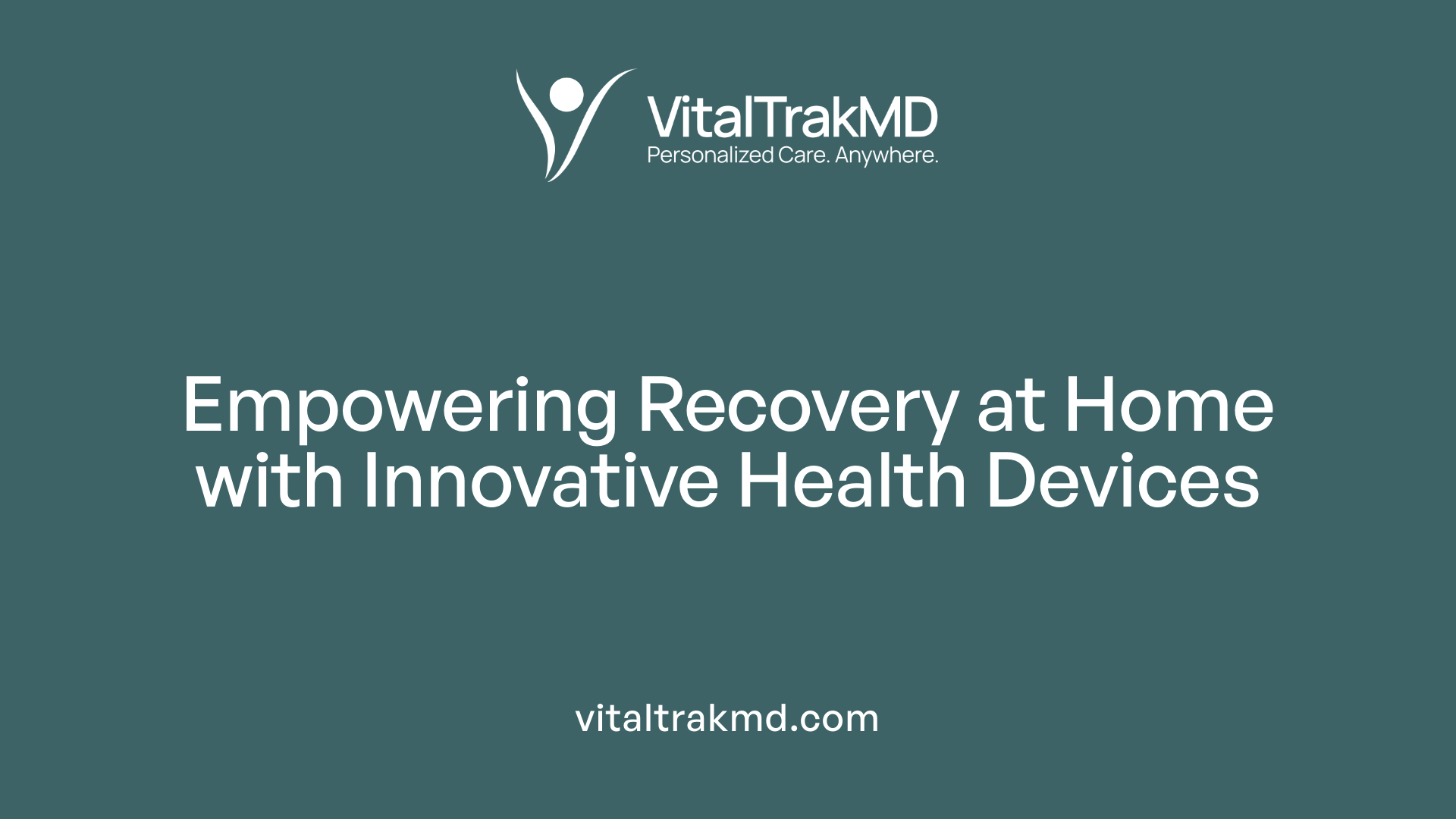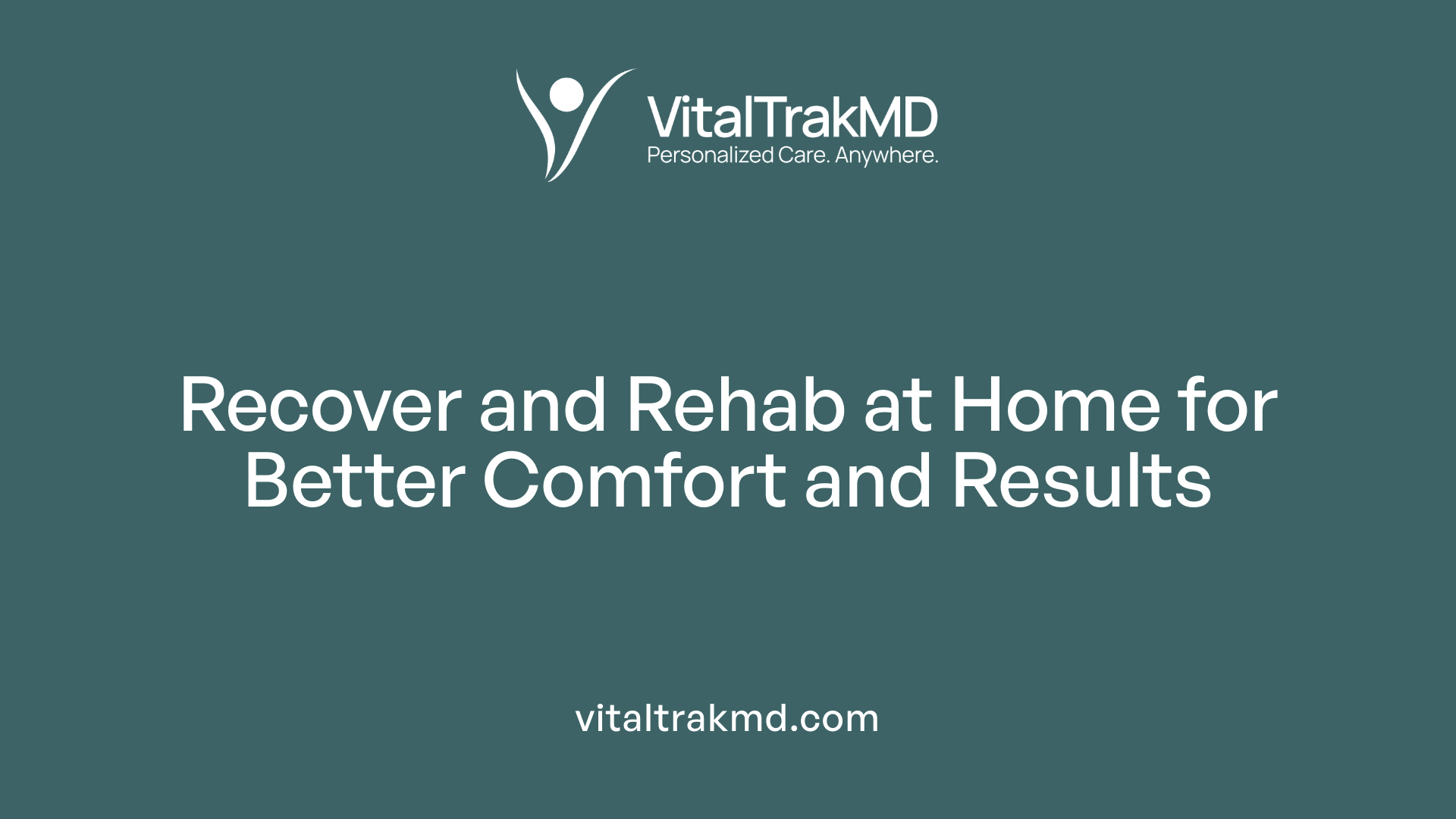How Hybrid Healthcare Helps Seniors Monitor Progress After Medical Procedures

Bridging Traditional and Digital Care for Seniors
As the senior population grows, managing health after medical procedures becomes increasingly complex. Hybrid healthcare—a mix of in-person and virtual care—has emerged as a powerful solution allowing seniors to monitor recovery and chronic conditions effectively from home. This approach offers personalized, continuous care, blending cutting-edge remote monitoring technology with compassionate human interaction to improve health outcomes and quality of life.
Comprehensive Hybrid Healthcare Services Tailored to Seniors’ Needs

In-person and virtual consultations for accessible care
Enabled Healthcare combines in-person visits with virtual consultations to provide seniors with flexible, accessible care options. This hybrid approach ensures that patients across different geographic areas can receive timely health support without the limitations of travel or mobility challenges.
Collaboration with primary and specialty providers
The company works closely with existing primary care physicians and specialists to create a seamless healthcare experience. This collaboration ensures that seniors’ complex chronic conditions are managed holistically and that all providers are aligned on treatment goals.
Development of personalized health plans
After patient referral, Enabled partners with individuals to co-develop customized care plans. These plans address each senior’s unique health needs, preferences, and lifestyle factors, ensuring that management strategies are both effective and respectful of the patient’s wishes.
Monthly in-person check-ins combined with active health monitoring
Ongoing care includes active health monitoring through equipment provided by Enabled, such as vital sign tracking devices, complemented by regular monthly in-person check-ins. This combination supports early identification of health changes and timely intervention to prevent complications.
How can care programs support individuals during their weight loss journey?
Care programs aid weight loss journeys by delivering personalized, multidisciplinary support tailored to each individual’s health profile and goals. They provide ongoing monitoring, lifestyle guidance, and adjustments to plans to sustain motivation and safety. For seniors, this often involves geriatric expertise to manage age-related changes and ensure interventions are appropriate. Telehealth options enable consistent communication and accountability, allowing patients to stay connected with coaches and healthcare providers. Through this supportive, integrated model, individuals—especially older adults—can navigate their weight loss journey with confidence and improved outcomes.
Remote Patient Monitoring: Technology Supporting Recovery at Home

Provision of Health Monitoring Equipment for Tracking Vitals
Enabled Healthcare equips seniors with monitoring tools that track vital signs such as blood pressure and heart rate. This technology empowers patients to stay informed about their health status from the comfort of their homes.
Use of In-Home Devices to Monitor Blood Pressure and Other Indicators
Using in-home devices, patients can regularly record important health indicators, enabling continuous monitoring. This helps caregivers and clinicians detect potential health issues early and intervene promptly.
Mobile Radiology Services Including X-rays and Ultrasounds at Home
In select locations, Enabled Healthcare offers mobile radiology services, such as x-rays, ultrasounds, EKGs, and Holter monitors. These services are delivered directly to patients' homes or care facilities, minimizing the need for travel and reducing exposure risk.
Smart Scales and Mobile Apps for Personalized Weight Management
Participants in certain programs receive smart scales shipped at no cost, paired with a mobile app. This app allows users to monitor weight trends, log food intake via photos, communicate with coaches, and share progress with healthcare providers. Such personalized support promotes healthier lifestyle choices and sustained weight management.
Integration with Existing Insurance Plans, Including Medicare and Medicaid
All these remote monitoring services are seamlessly integrated with existing health insurance coverage, including Medicare and Medicaid. For some facility types, the services are provided at no cost to patients, ensuring accessibility and affordability.
How can organizations design wellness and care programs that promote long-term healthy habits?
Successful wellness programs start by understanding employee needs and the work environment through careful assessments. Tailored strategies combining education, personalized goal setting, and supportive policies—such as smoke-free environments and healthy food options—lay a strong foundation.
Incorporating technology like health tracking apps fosters continuous engagement and motivation. Cultivating a positive health culture through community activities and environmental changes further promotes healthy habits.
Regular evaluation and feedback allow ongoing program improvement, helping sustain long-term success and positive health outcomes for participants.
Hospitalization and Rehabilitation at Home: A Paradigm Shift in Senior Care

Hospital-Level Care Delivered at Home
Hospitalization at Home programs provide seniors with hospital-level care in the comfort of their own homes. This includes administration of IV medications and performance of lab tests without the need for inpatient admission. By bringing these critical services directly to patients, the model reduces the physical and emotional stress that traditional hospital stays can cause.
Rehabilitation Services Post-Hospitalization
Following a hospital stay, seniors can receive comprehensive rehabilitation at home. Services such as physical therapy, occupational therapy, and speech therapy are made available to support recovery and regain functionality. Home-based rehabilitation promotes convenience and encourages quicker progress by allowing patients to heal in familiar surroundings.
Palliative Care Focusing on Symptom Management
Palliative care programs are designed to improve the quality of life for seriously ill seniors by managing symptoms and providing supportive care. Delivering this care at home offers patients comfort, privacy, and personalized attention tailored to their unique health needs.
Reducing Unnecessary Emergency and Inpatient Visits
These programs also play a crucial role in preventing unnecessary emergency room visits and inpatient stays. By establishing a safety net with active health monitoring and coordinated care plans, seniors with chronic conditions receive timely interventions, helping to avoid complications and costly hospital admissions.
Incorporating Wellness and Mental Health into Post-Procedure Monitoring
What role does mental wellness play in weight loss and overall health?
Mental wellness plays a vital role in weight loss and overall health by shaping motivation, stress management, and emotional regulation. These psychological factors influence how effectively seniors can make and sustain lifestyle changes necessary for improved health.
Issues like self-esteem, body image, and mental health conditions such as depression or anxiety often impact the ability to lose weight and maintain health gains. Poor mental health can create barriers, while good emotional well-being supports ongoing engagement with health goals.
Support systems are essential in this regard. Counseling, group support, and emotional reinforcement help combat feelings of isolation, which many seniors may experience. These networks foster better mental wellness, directly benefiting physical health outcomes.
Integrating behavioral health care with physical recovery enhances the effectiveness of post-procedure monitoring. Seniors receive personalized coaching on nutrition, activity, and meal planning through mobile apps, enabling continual mental and physical support.
This holistic approach acknowledges the two-way relationship between mental health and weight management, encouraging comprehensive care strategies that promote overall well-being in seniors.
Effective Wellness Programs for Long-Term Weight Management in Seniors
What are the most effective wellness programs for sustainable weight loss?
Effective wellness programs for seniors aiming for sustainable weight loss blend balanced, nutrient-rich diets with consistent physical activity and behavioral support. Diets such as Mediterranean, plant-based, low-carb, and DASH have strong evidence backing their health benefits and flexibility, making them well-suited to diverse senior preferences and nutritional needs.
Personalized meal planning plays a crucial role, tailoring dietary guidance to individual health conditions, tastes, and lifestyle. Coupled with dietary coaching, it fosters adherence and addresses challenges unique to seniors. Incorporating physical activity adapted to mobility and fitness levels enhances weight management outcomes.
Behavioral support components help manage motivation and emotional factors influencing eating habits, improving long-term success. Many programs now utilize mobile applications, enabling users to track food intake, monitor progress, and communicate with expert coaches remotely.
Privacy and data security are critical, with programs adhering strictly to HIPAA and other federal and state laws to safeguard participant information.
Accessibility is enhanced through programs funded by employers or health plans, provided at no cost to participants, sometimes including free shipped devices to aid monitoring. For eligible seniors, some initiatives may also offer clinically appropriate access to GLP-1 medications to support weight loss.
This holistic approach ensures seniors receive personalized, monitored, and supportive care, promoting healthier lifestyles and improved wellness over the long term.
The Future of Senior Care: Integrated and Accessible Hybrid Healthcare
Hybrid healthcare models are transforming how seniors manage their health post-medical procedures. By combining technology-driven remote monitoring with personalized, in-person care and mental wellness support, these programs deliver comprehensive, accessible, and effective recovery pathways. As these models continue to evolve and gain adoption, they hold the promise of enhancing seniors' independence, reducing healthcare costs, and fostering sustainable wellness habits. For seniors and caregivers alike, hybrid healthcare offers a new standard in compassionate, coordinated, and adaptive care—paving the way for healthier aging in place.
References
- Enabled Healthcare Launches Hybrid Clinic to Help Patients ...
- Geriatrics - Mount Sinai at Home
- Online Weight Management Program
- Primary Care Role In Weight Loss Management
- The Psychological Side of Weight Loss
- How losing weight can impact mental health
- Mental Health and Weight Loss: The Surprising Connection
Recent articles
Want to Feel Better and Live Healthier?
Join hundreds of patients taking control of their health with personalized care that fits their life – not the other way around.
Rated 4.8/5 by 32+ customers







